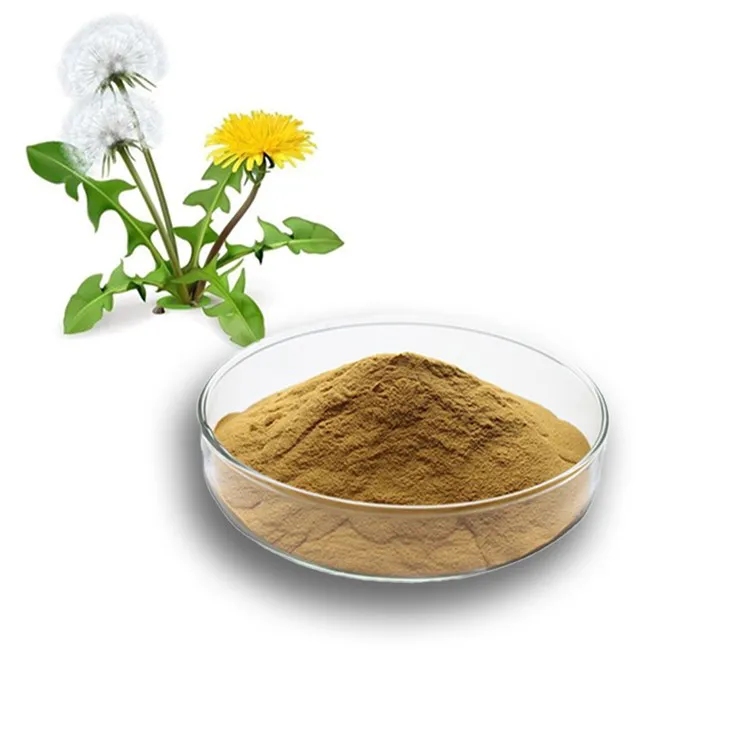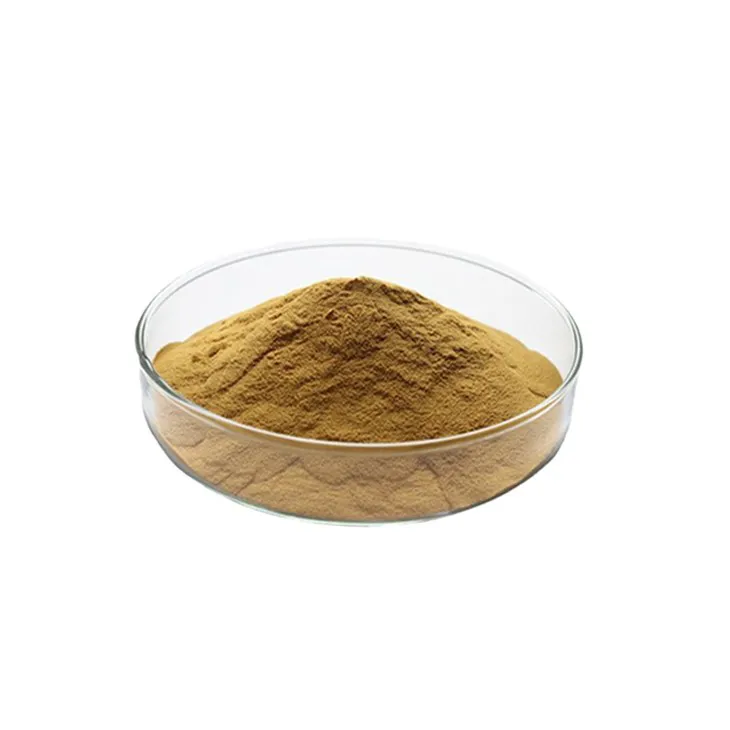- 0086-571-85302990
- sales@greenskybio.com
Does dandelion leaf extract have benefits for diabetes? Are these all safe and applicable for diabetic patients?
2024-11-12

1. Introduction
Diabetes mellitus is a chronic metabolic disorder that affects millions of people worldwide. Management of diabetes typically involves lifestyle modifications, such as diet and exercise, along with pharmacological interventions. In recent years, there has been an increasing interest in natural remedies for diabetes management. Dandelion (Taraxacum officinale), a common plant, has a long history of use in traditional medicine. Dandelion Leaf Extract is one of the components that has been investigated for its potential benefits in diabetes. This article aims to explore whether Dandelion Leaf Extract is beneficial for diabetes and its safety for diabetic patients.

2. Scientific Research Findings on Dandelion Leaf Extract and Diabetes
2.1. Antidiabetic Effects in Animal Studies
Several animal studies have suggested that dandelion leaf extract may have antidiabetic properties. In diabetic rats, for example, treatment with dandelion leaf extract has been shown to reduce blood glucose levels. One study found that the extract may act on the liver to enhance glucose metabolism. It was observed that certain enzymes involved in glucose production in the liver were down - regulated in rats treated with dandelion leaf extract. This could potentially lead to a decrease in the amount of glucose released into the bloodstream.
Another animal study investigated the effect of dandelion leaf extract on insulin sensitivity. The results indicated that the extract improved insulin - mediated glucose uptake in muscle cells of diabetic animals. This suggests that dandelion leaf extract may help diabetic patients better utilize insulin, which is crucial for maintaining normal blood glucose levels.
2.2. Human Studies
However, human studies on the effect of dandelion leaf extract in diabetes are relatively limited. Some small - scale clinical trials have been carried out. In one study, diabetic patients who were given dandelion leaf extract supplements for a certain period showed a slight improvement in their fasting blood glucose levels. But these results need to be further replicated and validated in larger and more comprehensive studies.
It should be noted that the variability in human responses to dandelion leaf extract may be due to factors such as differences in diet, overall health status, and the type and severity of diabetes among the participants.

3. Potential Mechanisms of Action
3.1. Regulation of Glucose Transporters
Dandelion leaf extract may influence the function of glucose transporters. Glucose transporters play a vital role in moving glucose in and out of cells. It is hypothesized that the extract can up - regulate the expression or activity of certain glucose transporters, especially in cells like muscle and adipose tissue. By enhancing the function of these transporters, more glucose can be taken up from the bloodstream into cells, thereby reducing blood glucose levels.
3.2. Antioxidant Activity
Oxidative stress is known to be associated with diabetes and its complications. Dandelion leaf extract contains antioxidants such as flavonoids and phenolic compounds. These antioxidants can scavenge free radicals and reduce oxidative stress in the body. By reducing oxidative stress, it may help protect pancreatic beta - cells, which are responsible for insulin production. If pancreatic beta - cells are protected, they can function better and produce adequate amounts of insulin, which is beneficial for diabetes management.
3.3. Anti - inflammatory Effects
Chronic inflammation is another factor contributing to diabetes. Dandelion leaf extract has been shown to possess anti - inflammatory properties. It can reduce the production of inflammatory cytokines in the body. Inflammatory cytokines can interfere with insulin signaling and glucose metabolism. By reducing inflammation, dandelion leaf extract may improve insulin sensitivity and glucose homeostasis.

4. Possible Side - Effects of Dandelion Leaf Extract
4.1. Gastrointestinal Disturbances
One of the most common side - effects associated with dandelion leaf extract is gastrointestinal disturbances. Some people may experience symptoms such as nausea, vomiting, abdominal pain, and diarrhea after taking the extract. These symptoms may be due to the presence of certain compounds in the extract that can irritate the digestive tract. However, the incidence of such side - effects varies among individuals, and not everyone will experience them.
4.2. Allergic Reactions
Allergic reactions to dandelion leaf extract are also possible. People who are allergic to other plants in the Asteraceae family (to which dandelion belongs) may be at a higher risk of developing an allergic reaction to dandelion leaf extract. Allergic symptoms can range from mild, such as skin rashes and itching, to more severe, such as difficulty breathing and anaphylactic shock. Therefore, it is important for individuals with a known history of plant allergies to be cautious when using dandelion leaf extract.
4.3. Interaction with Medications
Dandelion leaf extract may interact with certain medications. For example, it may interact with diuretics, as dandelion itself has diuretic properties. If taken together with prescription diuretics, it could potentially lead to excessive fluid loss and electrolyte imbalances. Additionally, it may interact with medications that are metabolized in the liver, as some components of the dandelion leaf extract may affect liver enzyme activity. Diabetic patients who are taking other medications should consult their healthcare provider before starting dandelion leaf extract supplements to avoid potential drug - extract interactions.

5. Safety Considerations for Diabetic Patients
For diabetic patients considering using dandelion leaf extract, several safety considerations need to be taken into account. Firstly, as mentioned above, the potential side - effects, especially gastrointestinal disturbances and allergic reactions, should be carefully monitored. If any adverse symptoms occur, the use of the extract should be discontinued immediately.
Secondly, due to the possible interactions with medications, diabetic patients who are on other medications for diabetes management (such as insulin or oral hypoglycemic agents) or for other comorbidities should consult their doctor or a pharmacist. They need to ensure that the use of dandelion leaf extract will not interfere with the effectiveness of their current medications or cause any harm.
Finally, the quality and purity of the dandelion leaf extract product are important. There is a wide variety of dandelion leaf extract products on the market, and not all of them are of high quality. Low - quality products may contain contaminants or have inaccurate labeling regarding the content of active ingredients. Diabetic patients should choose products from reliable sources and look for products that have been tested for quality and safety.
6. Conclusion
In conclusion, while there is some evidence from animal studies suggesting that dandelion leaf extract may have antidiabetic properties, human studies are still limited. The potential mechanisms of action, such as regulation of glucose transporters, antioxidant activity, and anti - inflammatory effects, are promising. However, there are also possible side - effects and safety concerns, especially regarding gastrointestinal disturbances, allergic reactions, and interactions with medications. Diabetic patients who are interested in using dandelion leaf extract should do so with caution and under the guidance of a healthcare professional. More research is needed to fully understand the benefits and risks of dandelion leaf extract in diabetes management.
FAQ:
Q1: What are the potential benefits of dandelion leaf extract for diabetes?
Dandelion leaf extract may have several potential benefits for diabetes. Some research suggests that it may help regulate blood sugar levels. It could potentially increase insulin sensitivity, which means the body's cells can respond better to insulin. Additionally, it may have antioxidant properties that can reduce oxidative stress often associated with diabetes. However, more research is needed to fully confirm these effects.
Q2: How does dandelion leaf extract potentially act on diabetes?
The possible mechanisms of action of dandelion leaf extract in diabetes are not fully understood. One theory is that it may contain compounds that interact with the body's glucose metabolism pathways. For example, it might affect the way the liver processes glucose or how insulin is secreted and used in the body. Another aspect could be its anti - inflammatory properties, as inflammation is often involved in diabetes development, and by reducing inflammation, it may have a positive impact on blood sugar control.
Q3: Are there any side - effects of dandelion leaf extract for diabetic patients?
While dandelion leaf extract is generally considered safe for most people, it can have some side - effects. Some people may experience allergic reactions, especially those who are allergic to other plants in the Asteraceae family. It can also cause digestive issues such as diarrhea, nausea, or stomach cramps in some cases. For diabetic patients, it's important to note that if dandelion leaf extract interacts with medications they are taking for diabetes, it could potentially lead to abnormal blood sugar levels. So, it's crucial to consult a doctor before using it.
Q4: Can dandelion leaf extract replace diabetes medications?
No, dandelion leaf extract cannot replace diabetes medications. Although it may show some potential benefits for diabetes management, it has not been proven to be as effective as established diabetes medications. Diabetes medications are specifically designed and tested to control blood sugar levels, and they often have a more predictable and reliable effect. Dandelion leaf extract should be seen as a complementary approach, if at all, and only used under the guidance of a healthcare provider.
Q5: How should diabetic patients use dandelion leaf extract?
If a diabetic patient wants to use dandelion leaf extract, they should first consult their doctor. The doctor can assess the patient's overall health, including their diabetes condition and any medications they are taking. If it is deemed safe to use, the patient should follow the recommended dosage instructions. It's important not to exceed the recommended amount as this may increase the risk of side - effects. Also, they should monitor their blood sugar levels closely while using the extract to ensure it is not having any unexpected effects on their diabetes management.
Related literature
- The Effects of Dandelion (Taraxacum officinale) on Diabetes Mellitus: A Review of the Current Evidence"
- "Dandelion Leaf Extract and Blood Sugar Regulation: New Insights from Recent Studies"
- "Safety and Efficacy of Herbal Remedies in Diabetes Management: Focus on Dandelion"
- ▶ Hesperidin
- ▶ citrus bioflavonoids
- ▶ plant extract
- ▶ lycopene
- ▶ Diosmin
- ▶ Grape seed extract
- ▶ Sea buckthorn Juice Powder
- ▶ Beetroot powder
- ▶ Hops Extract
- ▶ Artichoke Extract
- ▶ Reishi mushroom extract
- ▶ Astaxanthin
- ▶ Green Tea Extract
- ▶ Curcumin Extract
- ▶ Horse Chestnut Extract
- ▶ Other Problems
- ▶ Boswellia Serrata Extract
- ▶ Resveratrol Extract
- ▶ Marigold Extract
- ▶ Grape Leaf Extract
- ▶ blog3
- ▶ blog4
- ▶ blog5
-
Organic Tongkat Ali extract powder factory.
2024-11-12
-
How to make powder with ashwagandha extract.
2024-11-12
-
Rosehip extract manufacturers from China.
2024-11-12
-
The best cat's claw extract in nature.
2024-11-12
-
Chinese Dandelion Leaf Extract Suppliers.
2024-11-12
-
Hedyotis Diffusa Extract
2024-11-12
-
Feverfew Extract
2024-11-12
-
Buckthorn bark extract
2024-11-12
-
Curcuma Longa Extract/Turmeric extract
2024-11-12
-
Europen Bilberry Extract
2024-11-12
-
Hericium erinaceus extract powder
2024-11-12
-
Uridine-5'-monophosphate Disodium salt
2024-11-12
-
Lily extract
2024-11-12
-
Centella Asiatica Extract
2024-11-12
-
Elderberry Extract
2024-11-12





















